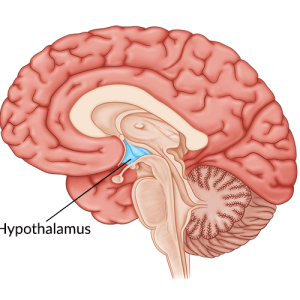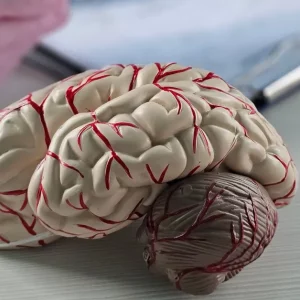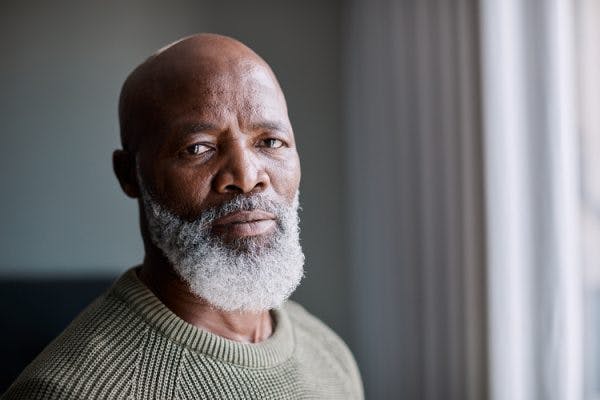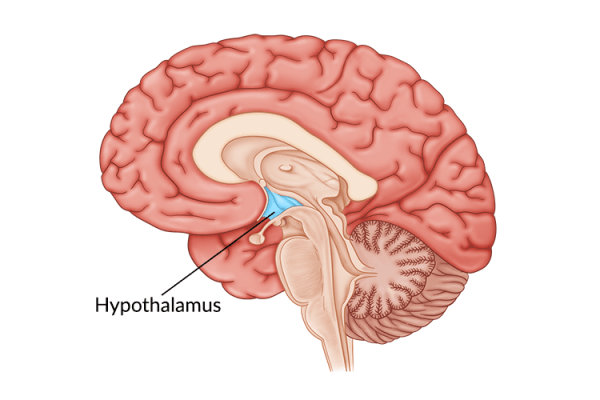Emotional problems after traumatic brain injury can be complex secondary effects. A brain injury can cause a wide variety of emotions, from sudden anger to feeling nothing at all. Fortunately, by understanding why emotional changes are happening, individuals can gain self-understanding and seek treatment or therapy, if necessary.
To help you understand emotional problems after traumatic brain injury, this article will discuss:
Causes of Emotional Problems After Traumatic Brain Injury
Damage to certain parts of the brain, particularly the frontal lobe, can have a devastating effect on a person’s emotional well-being.
The frontal lobe plays a large role in reasoning, problem-solving, judgment, and impulse control. In addition, the frontal cortex is responsible for controlling appropriate emotional responses. When this area of the brain becomes damaged, patients can have difficulty regulating their emotions. This often leads to aggressive and violent responses. It can also cause depression and different forms of anxiety.
However, because every brain injury causes different secondary effects, a brain injury to a different part of the brain such as the cerebellum may also cause secondary emotional problems.
It’s important to recognize that these changes are not the person’s fault. Rather, they result directly or indirectly from their brain injury. Therefore, it is crucial for friends and family to be patient and help their loved one cope with the emotional problems they are experiencing.
In the following section, we’ll discuss common emotional problems that may occur after brain injury.
Types of Emotional Problems That May Occur After Traumatic Brain Injury
There are several different types of emotional problems that can occur after brain injury. The following are the most common kinds of issues that patients may face:
1. Extreme Mood Swings (Emotional Lability)
Individuals who experience extreme mood swings after brain injury struggle with regulating emotional expression, resulting in inappropriate emotional outbursts. These extreme emotional changes may be caused by pseudobulbar affect or emotional lability.
What separates emotional lability from typical mood swings is how fast the changes occur. The slightest stimulation can overwhelm the brain and trigger an emotional response.
For example, a person suffering from emotional lability might become easily angered. Or they may go from laughing one moment to crying almost immediately after. These emotional responses typically seem inappropriate in context of the situation.
Moreover, these emotional outbursts do not usually reflect how the person feels. For example, the person might start crying uncontrollably when something funny occurs, or laugh hysterically when someone tells them bad news. Likewise, they may laugh or cry for no reason.
Because a brain injury can affect a person’s self-awareness, the person might not even realize that they are reacting inappropriately. Due to the area of their brain injury, individuals with pseudobulbar affect are unable to demonstrate the appropriate type and intensity of emotional response to given situations.
Generally, mood swings are most severe immediately postinjury and tend to improve with time; however, they may also impose long-term social and functional problems.
2. Flat Affect
On the opposite end of the emotional spectrum from pseudobulbar affect is “flat affect.” Flat affect refers to a total lack of emotion after a brain injury. It can also refer to the lack of ability to show emotion through facial expressions.
It is sometimes a symptom of depression. This means that once the depression is treated, the ability to feel and demonstrate emotion may return. But it also can be a completely separate condition that requires a more specialized approach.
A professional neuropsychologist can treat these conditions and help you become better at expressing emotions non-verbally.
3. Anxiety
Anxiety disorders are also common emotional problems after traumatic brain injury.
The most common types of anxiety disorders that occur after brain injury include:
- Panic disorders
- Phobias
- Obsessive-compulsive disorder
- Post-traumatic stress disorder
There are multiple reasons why brain injury seems to increase anxiety. Some of it is due to the emotional and psychological burdens of dealing with a serious disability. But some of it is caused by physical changes in the brain.
For example, after an injury, the brain is susceptible to overstimulation. This means that the brain is unable to regulate the input of sensory information as well, making it harder to cope in situations where the senses are overloaded. This results in things such as big crowds or loud noises more easily overwhelming you and triggering anxiety.
Likewise, overstimulation can cause individuals to feel a loss of control of their surroundings and emotional responses. As a result, they may withdraw or show avoidant behaviors, which in turn, can contribute to the development of depression.
4. Depression
Depression after brain injury usually begins to manifest in the later stages of recovery, after the person has become more aware of their condition.
Symptoms of depression include:
- Overwhelming feelings of sadness and worthlessness
- Changes in sleep or appetite
- Difficulty concentrating
- Social withdrawal
- Extreme fatigue
Many of these symptoms are also direct effects of brain injury. Therefore, it can sometimes be difficult to tell whether a TBI patient is actually suffering from depression.
Generally, you can distinguish between brain damage and depression by how long it takes for the symptoms to manifest. If they show up soon after injury, they are probably not a sign of depression.
5. Angry Outbursts and Short Temper
Studies have shown that around 30% of traumatic brain injury patients report struggles with anger and aggressive behavior.
For family members and friends, it can sometimes be a frightening experience to witness these outbursts. The person might yell, use foul language, throw objects, and slam their fists into the wall.
Outbursts like these are caused by several factors, such as damage to the brain’s impulse control center, frustration with their new limitations, and fatigue.
Therefore, it’s important for family members to stay patient and try to remember that their anger is likely not really directed at you.
Coping with Emotional Problems After Traumatic Brain Injury
Emotional problems after brain injury are difficult to overcome. Whether you struggle with flat affect, anger issues, or a different emotional condition, consider working with a neuropsychologist. These are mental health professionals who specialize in neurological injuries like TBI and their effect on emotions.
In the meantime, here are some simple and effective tips that can help you better manage emotional problems:
- Understand your behavior. Paying attention to potential triggers to emotional reactions and avoiding these can help you to better keep your responses in check. For example, if you notice your frustration increases when you’re hungry, try setting an alarm to remind you to eat. This will help you avoid hunger and stay in control.
- Diet and exercise. Your diet and exercise play a huge role in your emotional health, with or without a brain injury. If possible, try doing some form of physical exercise for at least fifteen minutes a day. It might surprise you how much calmer you’ll feel. Participating in a physical activity outdoors can further increase the emotional and health benefits of movement.
- Take a break. If you start to feel your emotions rising, take a break from what you are doing. Sometimes a short, brisk walk or even playing a game on your phone is enough to help you calm down.
- Let people in. Don’t try to hide your difficulties or manage your emotions all on your own. Witnessing uncontrolled laughter or sobbing can be confusing and upsetting for other people if they don’t understand what is happening.
- Apologize to people if your outburst was directed at them, and let them know you are working on getting better. Not only will this prevent lost friendships, but it can also help you build trusting relationships with others.
While these techniques will not eliminate your emotional problems, they can at least help reduce their severity.
Treatments for Emotional Problems After TBI
Treatments will vary depending on what type of emotional problem you’re experiencing after TBI. Because everyone experiences TBI and emotional problems differently, a personalized approach to treatment is ideal.
Generally, treatment will consist of therapy, medications, or a combination of both. Some common treatments for emotional problems include:
- Cognitive-behavioral therapy. Cognitive-behavioral therapy can help individuals be more aware of their emotional problems, what triggers them, and learn more effective ways to cope. For individuals with flat affect, this can involve social skills training, which teaches individuals how to better express their feelings.
- Nuedexta. Individuals with extreme mood swings after brain injury may be prescribed a medication called Nuedexta. It is the only drug approved by the FDA to treat emotional lability.
- Antidepressants. Antidepressants may help regulate neurotransmitter levels in the brain to stabilize mood.
Make sure to speak with your doctor to determine an ideal treatment plan for your specific emotional problems.
Emotional Problems After Traumatic Brain Injury: Key Points
Emotional issues after brain injury can affect the most important relationships in our lives. If left untreated, they can even prevent a person from making progress in their recovery.
That’s why it’s so important to address emotional problems after traumatic brain injury, and find effective ways to overcome them. We hope this article will help you find emotional healing after brain injury.










